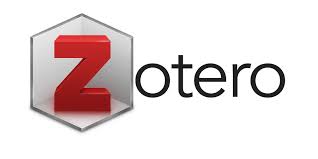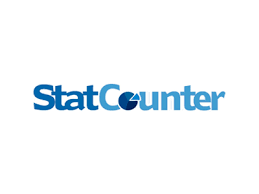An Analysis of Students' Mathematical Adaptive Reasoning: The Impact of Creative Problem-Solving (CPS) Learning Model and Entrepreneurial Character
DOI:
https://doi.org/10.29240/ja.v5i1.5777Keywords:
Adaptive reasoning, CPS learning model, Entrepreneurial characterAbstract
This research aims to determine the effect of the CPS learning model on mathematical adaptive reasoning ability in terms of students' entrepreneurial character. This research is quantitative research of the quasi-experimental research design with a posttest-only control group design. The population was the eighth-grade students of SMP Negeri 1 Natar, consisting of 367 students. The sampling technique used was cluster random sampling. The data analysis technique employed was the two-way Anova test with a significance level of 0.05. The finding showed that there was an effect of the CPS learning model on students' mathematical adaptive reasoning ability. The CPS learning model provided higher results compared to the conventional learning model. Besides, the students' entrepreneurial character influenced their mathematical adaptive reasoning ability. Students with high entrepreneurial character had higher mathematical adaptive reasoning ability than those with low entrepreneurial character. However, the Tukey test result showed no interaction between the CPS learning model and entrepreneurial character on students' mathematical adaptive reasoning ability.
Downloads
References
Ansari, B. I., Taufiq, T., & Saminan, S. (2020). The use of creative problem-solving model to develop students’ adaptive reasoning ability: Inductive, deductive, and intuitive. International Journal on Teaching and Learning Mathematics, 3(1), 23–36. https://doi.org/10.18860/ijtlm.v3i1.9439.
Chang, J., & Rieple, A. (2013). Assessing students’ entrepreneurial skills development in live projects. Journal of Small Business and Enterprise Development, 20(1), 225–241. https://doi.org/10.1108/14626001311298501.
Demchenko, O., Kazmirchuk, N., Zhovnych, O., Stakhova, I., Podorozhnyi, V., & Baranovska, I. (2022). Preparing Students for The Use of Theater Activities for Children’s Development Soft Skills: European Context. In Society. Integration. Education. SOCIETY. INTEGRATION. EDUCATION. Proceedings of the International Scientific Conference, 1, 31–46. https://doi.org/10.17770/sie2022vol1.6866.
Endramawati, T. A., Mastur, Z., & Mariani, S. (2019). Mathematical Literacy Based On Entrepreneurial Character Students on Problem Based Learning Nuance of Mathematics In Context. 8(2), 210–211. Retrieved from https://journal.unnes.ac.id/sju/index.php/ujmer/article/view/28205.
Fransisca, R., Wulan, S., & Supena, A. (2020). Meningkatkan percaya diri anak dengan permainan ular tangga edukasi. Jurnal Obsesi: Jurnal Pendidikan Anak Usia Dini, 4(2), 630–638. https://doi.org/10.31004/obsesi.v4i2.405.
Hidayat, A., & Pradesa, D. (2022). Dakwah Pasca Pandemi dengan Karakter Entrepreneurship. INTELEKSIA-Jurnal Pengembangan Ilmu Dakwah, 4(1), 1–24. https://doi.org/10.55372/inteleksiajpid.v3i2.235.
Juniati, Siagian, S., & Mursid, R. (2021). Efektivitas Model Pembelajaran Kooperatif dan Minat Belajar Terhadap Kewirausahaan. 8(2), 166. https://doi.org/10.24114/jtikp.v8i2.31385.
Konita, M., Asikin, M., Sri, T., & Asih, N. (2019). Kemampuan Penalaran Matematis dalam Model Pembelajaran Connecting, Organizing , Reflecting , Extending (CORE). 2, 611. Retrieved from https://journal.unnes.ac.id/sju/index.php/prisma/article/view/29072.
Magfirah, Asfar, A. M. I. T., Asfar, A. M. I. A., Nurwijaya, S., & Fauziah, A. (2022). Improving mathematical adaptive reasoning through traditional game “Lojo-Lojo Pindip†based on Android. AIP Conference Proceedings, 2577(1), 020034. AIP Publishing LLC. https://doi.org/10.1063/5.0096043.
Malisa, S., Bakti, I., & Iriani, R. (2018). Model Pembelajaran Creative Problem Solving (CPS) Untuk Meningkatkan Hasil Belajar dan Kemampuan Berpikir Kreatif Siswa. Jurnal Vidya Karya, 33(1), 18. https://doi.org/10.20527/jvk.v33i1.5388.
Martynov, V. V., Shavaleeva, D. N., & Zaytseva, A. A. (2019). Information technology as the basis for transformation into a digital society and industry 5.0. 2019 International Conference" Quality Management, Transport and Information Security, Information Technologies"(IT&QM&IS), 539–543. IEEE. https://doi.org/10.1109/ITQMIS.2019.8928305.
Muhammad, G. M., Septian, A., Sofa, M. I., Matematika, P., Suryakancana, U., Raya, J. P., … Barat, J. (2018). Penggunaan Model Pembelajaran Creative Problem Solving Untuk Meningkatkan Kemampuan Pemecahan Masalah Matematis Siswa. Mosharafa: Jurnal Pendidikan Matematika, 7(3), 325. https://doi.org/10.31980/mosharafa.v7i3.140.
Muin, A., Hanifah, S. H., & Diwidian, F. (2018). The effect of creative problem solving on students’ mathematical adaptive reasoning. Journal of Physics: Conference Series, 948(1), 012001. IOP Publishing. https://doi.org/10.1088/1742-6596/948/1/012001.
Muliadi, A., Sarjan, M., & Rokhmat, J. (2022). Pembelajaran IPA Berbasis Bioentrepreneur Pada Etnosains Poteng Jaje Tujak: Perspektif Filsafat. Jurnal Pendidik Indonesia (JPIn), 5(2), 363–383. Retrieved from http://jurnal.intancendekia.org/index.php/JPIn/article/view/338.
Oktaviana, D., & Haryadi, R. (2020). Kemampuan Penalaran Adaptif Melalui Model Reciprocal Teaching Pada Logika Matematika dan Himpunan. SAP (Susunan Artikel Pendidikan, 5(2), 125. https://doi.org/10.30998/sap.v5i2.7276.
Permana, N. N., Setiani, A., & Nurcahyono, N. A. (2020). Analisis Kemampuan Penalaran Adaptif Siswa Dalam Menyelesaikan Soal Higher Order Thinking Skills (HOTS). JPPM SUKA, 2(2), 52. https://doi.org/10.14421/jppm.2020.022-02.
Polindi, M. (2019). Pengaruh Karakter Entrepreneur Terhadap Minat Berwirausaha (Studi Empiris Pada Santri di Pondok Pesantren Al-Ittifaq Ciwidey Bandung). AL-INTAJ, 5(1), 66. https://doi.org/10.29300/aij.v5i1.1716.
Puspita, L., Supriadi, N., & Pangestika, A. D. (2018). Pengaruh Model Pembelajaran Creative Problem Solving (CPS) Disertai Teknik Diagram Vee Terhadap Keterampilan Berpikir Kreatif Peserta Didik Materi Fungi K. Tadris Pendidikan Biologi, 9(1), 12. https://doi.org/10.24042/biosf.v9i1.2871.
Rachman, A., & Rosnawati, R. (2021). Efektivitas model pembelajaran creative problem solving ditinjau dari kemampuan penalaran, komunikasi dan self-esteem. 8(2), 235. https://doi.org/10.21831/jrpm.v8i2.34420.
Salamzadeh, A., Tajpour, M., & Hosseini, E. (2022). Measuring the impact of simulation-based teaching on entrepreneurial skills of the MBA/DBA students. In Technology and Entrepreneurship Education: Adopting Creative Digital Approaches to Learning and Teaching (pp. 77–104). Springer. https://doi.org/10.1007/978-3-030-84292-5_4.
Saniyyah, F., & Triyana, I. W. (2020). Analisis Penalaran Adaptif Siswa dalam Memecahkan Masalah Matematika Berdasarkan Adversity Quotient (AQ). Mathematics and Natural Sciences Education, 1(2), 121. https://doi.org/10.35719/mass.v1i2.32.
Sima, V., Gheorghe, I. G., Subić, J., & Nancu, D. (2020). Influences of the industry 4.0 revolution on the human capital development and consumer behavior: A systematic review. Sustainability, 12(10), 4035. https://doi.org/10.3390/su12104035.
Suhanda, A. S., Lestari, T. C., & Rozak, A. (2023). Reasoning Adaptive Ability in Solving Questions Mathematics Logic Based on Learning Creativity. International Journal of Smart Systems, 1(1), 9–18.
Tambunan, L. O. (2021). Model Pembelajaran Creative Problem Solving untuk Meningkatkan Kemampuan Penalaran dan Komunikasi Matematis. JNPM (Jurnal Nasional Pendidikan Matematika), 5(2), 366. https://doi.org/10.33603/jnpm.v5i2.4630.
Tee, T. K., Ahmad Puad, F. N., Kamis, A., Yee, M. H., Abd Hamid, R. I., Shafie, S., & Bedor, S. A. (2022). Enhancing Cosmetology Students’ Communication Skills in Malaysian Upper Secondary Vocational Education Program. International Journal of Evaluation and Research in Education, 11(1), 260–271. https://doi.org/10.11591/ijere.v11i1.22285.
Turmuzi, M., Sudiarta, I. G. P., & Sutajaya, I. M. (2022). Menumbuhkan Jiwa Kewirausahaan Melalui Pembelajaran Matematika Materi Aritmatika Sosial Berorientasi Higher Order Thinking Skills (HOTS). 06(02), 1989. https://doi.org/10.31004/cendekia.v6i2.1419.
Wasiran, Y., & Andinasari, A. (2019). Meningkatkan Kemampuan Berpikir Kreatif dan Penalaran Adaptif Matematika Melalui Paket Instruksional Berbasis Creative Problem Solving. JNPM (Jurnal Nasional Pendidikan Matematika), 3(1), 51–65. https://doi.org/10.33603/jnpm.v3i1.1466.
Downloads
Published
Issue
Section
Citation Check
License
Authors who publish with ARITHMETIC: Academic Journal of Math agree to the following terms:
- Authors retain copyright and grant the journal right of first publication with the work simultaneously licensed under a Creative Commons Attribution-NonCommercial-ShareAlike 4.0 International License (CC BY-NC-SA 4.0) that allows others to share the work with an acknowledgment of the work's authorship and initial publication in this journal.
- Authors are able to enter into separate, additional contractual arrangements for the non-exclusive distribution of the journal's published version of the work (e.g., post it to an institutional repository or publish it in a book), with an acknowledgment of its initial publication in this journal.
- Authors are permitted and encouraged to post their work online (e.g., in institutional repositories or on their website) prior to and during the submission process, as it can lead to productive exchanges, as well as earlier and greater citation of published work (See The Effect of Open Access).







